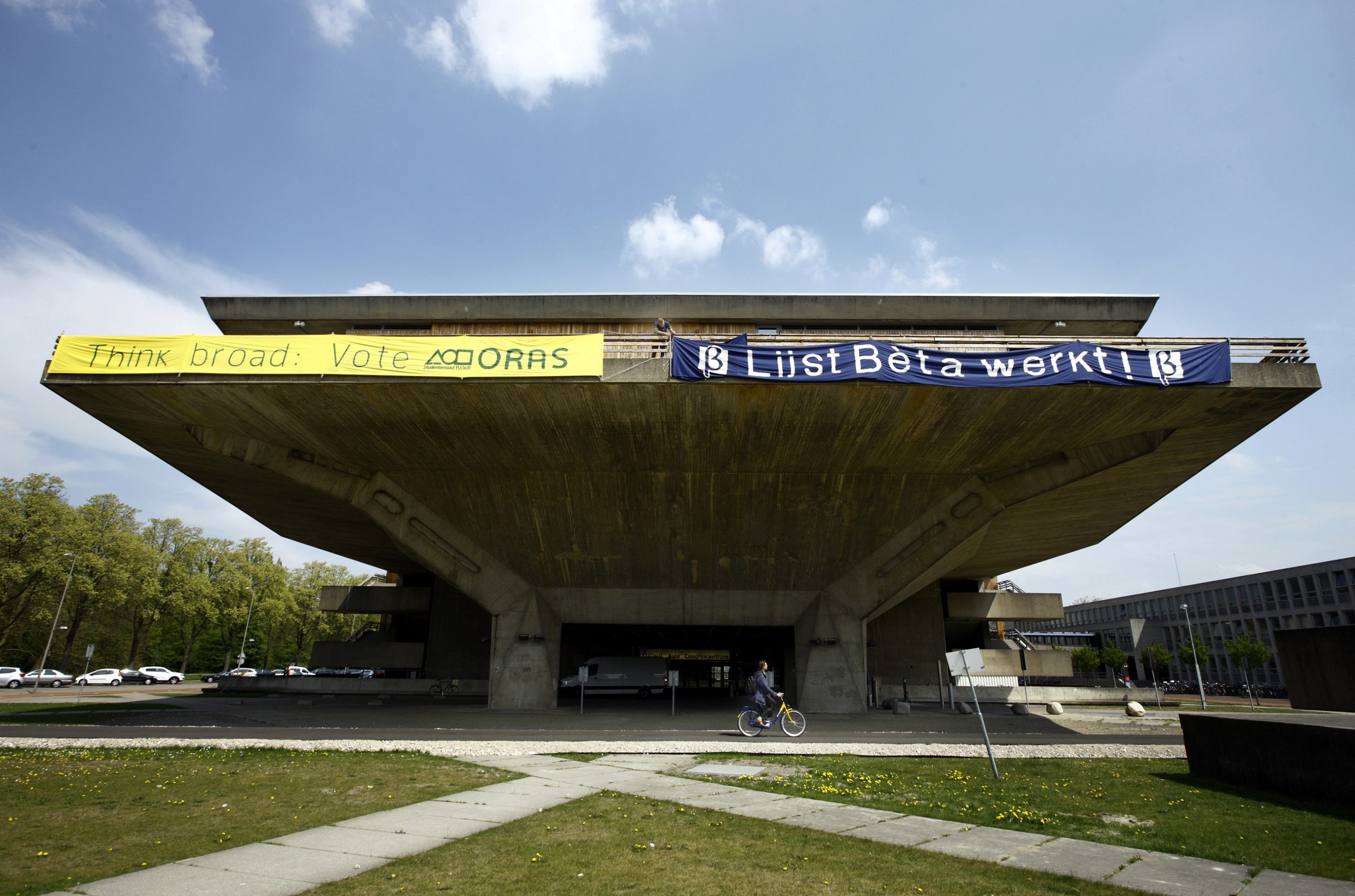Too little interest, insufficient knowledge and inadequate remuneration. these are concerns of the Lower House regarding student/staff participation in the higher education.
Campaign of Delft student council parties. (Photo: Sam Rentmeester)
As members of the participation council, students and staff can participate in decisions relating to the policy of their educational institution. The idea is that people that are involved with education on a daily basis ought to have a say.
But although Minister Van Engelshoven concludes that things “are, in general, going well in terms of participation”, a fair number of points for improvement emerge from a recent evaluation by research agency Berenschot. She told the House about it in September, following which she has received questions from the VVD, D66, PvdA, GroenLinks and SGP.
Little interest
One of the concerns is the lack of interest in participation among students. And that is not a new problem: in 2017 it emerged from a survey by ResearchNed that 67 percent of higher professional education students have no idea what participation entails. In recent years, increasingly few students have been putting themselves forward as members of the participation council. Consequently, in the view of Education Minister Van Engelshoven more attention needs to be paid to getting people interested and recruiting them.
‘Someone who is involved on a full-time basis is more visible to fellow-students‘
But the VVD wants to know how the minister intends engendering more interest. And has the ministry examined the underlying reason for the lack of interest, D66 wonders. Is it perhaps because the remuneration for working on the council is inadequate?
Remuneration
The minister has a few weeks to give her answer, but two student organisations have already fired a shot across her bows. Every two years, the Dutch National Students’ Association (ISO) conducts a survey into the state of play with regard to participation. Last year it turned out that the remuneration for student members differs greatly from one institution to another. It ranges from 100 to 740 euro per month. Additionally, members are not all paid for the same number of hours. In Delft, members of the central student council receive between 255 and 310 euros per month for twelve months.
Making more hours and more money available could encourage more students to get involved, says the ISO. “Someone who is involved on a full-time basis is also more visible to fellow-students”, says ISO chair Lisanne de Roos.
The money is indeed an important factor, in the opinion of Benjamin Velge of the Hbo Medezeggenschap foundation. He feels that it would be good if the remuneration were to be standardised across all the institutions. But you have to look further than that too, he says. “There are also universities of applied sciences where the remuneration is high but the interest is low.”
‘You have experienced administrators sitting opposite you‘
He thinks that making people enthusiastic works better. “Some universities of applied sciences have opened an Instagram account for the participation council, while at other places a lot less happens”, he says. Lisanne de Roos of the ISO considers this important as well, but thinks that a good remuneration is the best place to start. “If you’ve got that organised, the council has the leeway and time to enthuse people.”
Lack of knowledge
Another recurring theme is the lack of knowledge among participation councils. “Quintessentially, it’s a long-term problem”, says De Roos. How do you read a budget, what are your rights and obligations: these are all things that you have to learn if you join the participation council. “Only at the end of your one or two-year term do you know more or less how it works. During that time you have experienced administrators sitting opposite you”, Velge explains.
The support for the participation council still differs too much from one institution to another, in De Roos’s view. “We want a clear guideline that ensures good facilitation of the participation council: about the level of remuneration, about the number of hours and about the necessary training.”
There are concerns in the House too. For instance, who is monitoring whether the participation council is getting adequate support, GroenLinks wanted to know from the minister. In her letter she put the ball in the institutions’ court for the time being: “I refer education administrators to their role and legal responsibility in supporting the participation council.”
Maybe an outgoing minister cannot be expected to make any major changes, but in view of the many questions from the House the subject will doubtless be raised again when there is a new government.
HOP, Josefine van Enk
Translation: Taalcentrum-VU
Do you have a question or comment about this article?
redactie@hogeronderwijspersbureau.nl


Comments are closed.